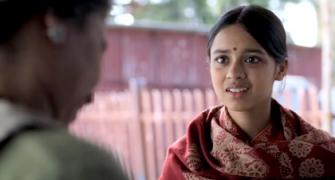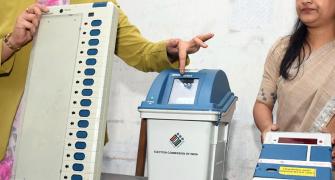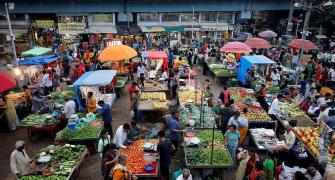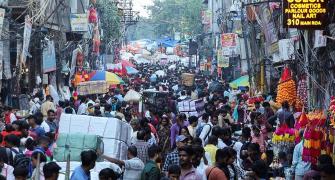Helped by stimulus measures, the Indian economy is expected to grow at a relatively high pace despite adverse global economic environment, the government said on Thursday.
In her customary address to the joint sitting of Parliament, President Pratibha Patil said, "Even in the prevailing adverse global environment, our economy, it is hoped, would still register a relatively high growth rate."
Official estimates have pegged GDP growth for FY'09 at 7.1 per cent, considered good at a time when most developed economies are facing recession.
She said the government has taken a series of measures to stimulate the economy. These steps would drive demand for goods and services reviving production activities in the manufacturing as well as services sectors.
"India's domestic demand can inject fresh momentum to our economy," Patil said, adding that the country's banks are well capitalised and face no threat that many banks face in other parts of the world.
She said the government policies have ensured that even as the country faces an economic slowdown along with the rest of the world, 'our fundamentals are much better.'
The economy has seen unprecedented expansion of 8.9 per cent growth in the last four years and above nine per cent in the last three years.
The President said the government has worked actively with the international community to address key global challenges of terrorism, energy and food security, climate change and sustainable development, global economic and financial crisis and the reform of international institutions, including of the UN, to reflect contemporary realities.
"The conclusion of an India Specific Safeguards Agreement with the International Atomic Energy Agency and the decision of the Nuclear Suppliers' Group in 2008 to allow its members to enter into full nuclear cooperation and trade with India in nuclear material and technology marks the beginning of the end of 34 years of nuclear isolation and the technology denial regime that India was being subjected to," she said.
Patil said this has opened the way for our indigenous nuclear power generation programme to be reinforced by additionalities through international civil nuclear energy cooperation, thereby also contributing to the global fight against climate change.
"The opening of such cooperation with India is a vindication of India's impeccable record on non-proliferation and our long standing commitment to universal, non-discriminatory and comprehensive nuclear disarmament," she said.
"The attack in Mumbai was deliberately planned to retard our economic progress. My government is heartened by the international support it has received after these attacks.
"There is greater appreciation in the international community of the threat that exists to the region and the world from the terrorism emanating from Pakistan," the President said.
Patil said the government has strengthened the country's internal security to protect people from mindless acts of violence and a number of steps have been taken in this regard which include establishment of National Investigation Agency and amendment of the Unlawful Activities (Prevention) Act.
"These measures have strengthened the legal and investigative framework to tackle terrorist forces. While arming the internal security apparatus with these powers, all care would be taken to uphold legal procedures and prevent any misuse of such powers," she said adding a comprehensive plan has been drawn up to strengthen maritime and coastal security against threats from sea.
The President said Left wing extremism remained a major concern in several states and the government has adopted a holistic approach to tackle this problem in close coordination with the affected states through modernisation of police forces and better implementation of socio-economic development programmes for the most backward regions.
The President said the government has worked actively with the international community to address key global challenges of terrorism, energy and food security, climate change and sustainable development, global economic and financial crisis and the reform of international institutions, including of the UN, to reflect contemporary realities.
"The conclusion of an India Specific Safeguards Agreement with the International Atomic Energy Agency and the decision of the Nuclear Suppliers' Group in 2008 to allow its members to enter into full nuclear cooperation and trade with India in nuclear material and technology marks the beginning of the end of 34 years of nuclear isolation and the technology denial regime that India was being subjected to," she said.
Patil said this has opened the way for our indigenous nuclear power generation programme to be reinforced by additionalities through international civil nuclear energy cooperation, thereby also contributing to the global fight against climate change.
"The opening of such cooperation with India is a vindication of India's impeccable record on non-proliferation and our long standing commitment to universal, non-discriminatory and comprehensive nuclear disarmament," she said.







